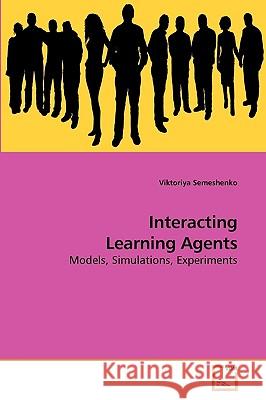Interacting Learning Agents » książka
Interacting Learning Agents
ISBN-13: 9783639190946 / Angielski / Miękka / 2009 / 176 str.
Individuals decisions in social systems are frequently influenced by the behavior or choices of others. These social effects may lead to multiple collective states, bringing up coordination problems. The outcome cannot be predicted a priori even in small systems. Depending on the intensity of interactions and the individuals learning capacities, non-optimal states may emerge, due to coordination failures. Understanding the emergence of collective states, which comes from the individual behavior of a large number of interacting individuals, is essential for the comprehension of social and industrial organizations. Here we present a study of such collective phenomena using methods of statistical physics and numerical simulations. We explore how the heterogeneity of the individuals, their interactions and learning capacities influence the systems behavior. Equilibrium properties and dynamics obtained with various learning scenarios are thoroughly analyzed. Furthermore, interesting experimental studies address the issues of coordination problems with heterogeneous players. This work is aimed at a broad audience of researchers and students in areas of social and natural sciences.











